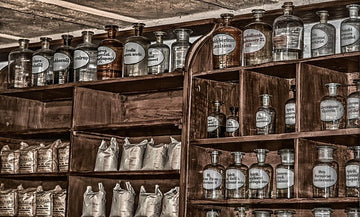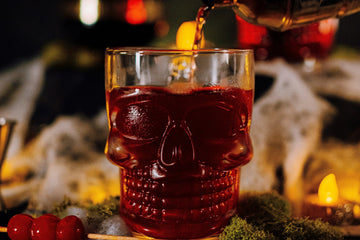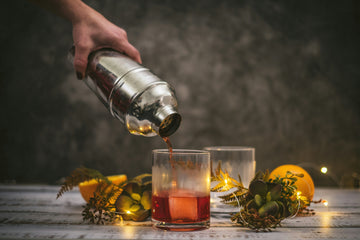Where Did Gin Originate? The Complete History of Gin
by Emily Jones on Aug 26, 2025

Alcohol in general was believed to have been first consumed by humans as early as 10,000 BC, with the first documented recipe being made from a concoction of fermented rice, honey, and hawthorn fruit. This was a far cry from the craft beers and perfectly balanced cocktails that we enjoy today.
The first recorded instance of a beverage being made and consumed by humans that could be interpreted as an early version of gin dates back to the Middle Ages. During this time, an anti-inflammatory medical elixir made from juniper berries was used to treat urinary tract infections and various stomach problems.
What Country did Gin Originate From?
Like many aspects of history, the exact origins of gin’s development are often debated, with no clear, definitive timeline of its inception. The Netherlands is a common theory for the origin of modern day gin, where it was believed to have been created as well as first commercialised and sold for recreational use.
Who Invented Gin?
Professor Sylvius de Bouve is credited as the inventor of gin. In 1572, the Dutch chemist, alchemist, and scholar created ‘genièvre’, a treatment for lower back pain which was made up of a mix of grain spirit and oil of juniper.
This concoction was then commercialised 3 years later by the Bols family, who set up the world’s first distillery brand in Professor Sylvius de Bouve home city, Amsterdam.
When did Gin come to the UK?
By the early 1600s, gin had become widely consumed as a recreational drink across the Netherlands. In 1618, the Thirty Years’ War saw English soldiers fighting alongside the Dutch, which quickly introduced the English, alongside other Dutch allies including Danes and Swedes, to gin.
Naturally, the English soldiers bought the word of the new spirit back on their return to England, and by 1670, Dutch distillers started gin trade with the UK.
When Was Gin Popularised?
By the mid 1600s, gin was already widely popular in the Netherlands, and the Thirty-Year War only amplified the gin hype as the word spread around Europe. In 1688, Dutchman and gin lover William III (also known as William of Orange) became King of England, which further skyrocketed gin’s popularity in the UK. Gin distilleries then started opening up within the UK, which made gin cheaper and more readily available for UK citizens.
The Gin Craze
The boost in accessibility to gin in the UK caused an 18th century ‘gin craze’. Read more about The Gin Craze, its origin, and its lasting legacy.
Gin in the Modern World
By the 1800s, new and improved distilling methods made for cleaner and lighter spirits, which furthered the appeal of gin. Experimentation with gin emerged during this time, which brought along the introduction of London Dry Gin, as well as many classic gin cocktails, including the Martini and the Tom Collins.
In the 1900s, after WW2, vodka would rise in popularity, overtaking gin as the ‘trendy’ drink. In the 21st century, new and innovative variants of gin, such as pink gin, would see the resurgence of the gin trend, with new botanicals and flavours opening up the world of gin to a brand new market.
Where does the word ‘gin’ originate from?
‘Gin’ is the anglicised and shortened name that the English gave to ‘Jenever’ when it was introduced to them by the Dutch. ‘Jenever’ is the Dutch word for ‘Juniper’, the main ingredient of traditional gin.




